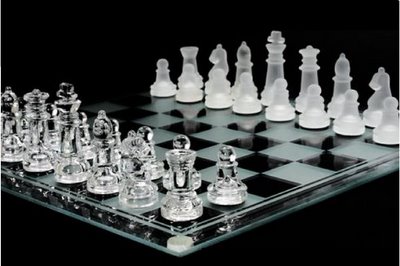How not to play chess (part 1)
I have written previously about 7 deadly mistakes every novice player makes. Today I have decided to extend this list even further and to add 5 other typical “problematic choices” that amateur chess players make to have their chess life more difficult and stressful.
If you find yourself in some of these how-not-to-play examples you should feel good since by fixing it you can improve your play and win more games. I should feel accomplished, since the time I spend writing it is worthwhile and I helped other players to get better at chess.
1. Starting the game with flank pawns.
Even though starting the game with A or H pawns may seem normal for players of certain strength (usually beginners) it is not the best opening choice. Since the main “classical” opening idea to occupy the center and to attack the king is still valid, it is also the strongest way to start the game. Of course there are exceptions to this rule, for example when a player intentionally gives up a center in order to attack the central pawns later (such as Kings Indian Defense),but it is probably better for the novice players to occupy the center right away. Why do people still play opening moves like 1.a4 or 1.h4? Let me ask you, do you know what is A00 Ware opening or A00 Doprez opening? Does it ring any bells in your memory? I would think most people who read this would say “no”. That’s exactly why a not-very-novice player would play a move like that. He wants to surprise an opponent and take him out of his normal opening lines. The drawback of this choice is that it is not the strongest way to start the game and it gives up some advantage of playing white.
2. Developing the queen too early.
It’s an old “bad choice” and everyone knows that they shouldn’t do it but… they still do it. Developing the queen too early can cost you one or multiple tempos, which your opponent will gain chasing your queen all over the board and developing their own pieces. Novice players do it a lot. They think that activating the strongest piece as early in the game as possible must be good. It is logical. It is making perfect sense. But it is wrong, for the reason of lost tempos. Experienced players sometimes activate the queen early too, but for a different reason: they are forced to do so. For example they must recapture with the queen and leave it in the center of the board, helping the opponent to develop. In conclusion, don’t activate the queen too early in the game unless you have a very good reason to do so (fork, material gain, mate, etc.)
3. Castling at the wrong time and to the wrong place.
Novice players think that castled means safe. It is not always true in chess. How many times when you watched a game you have thought that this guy must be crazy to castle where the opponent’s pieces are active and ready for action. If the file across the castled king is opened and the opponent’s rooks are ready to occupy it, castling is a chess harakiri. Castling is not a must. It is a privilege to put your king to safety and connect the rooks in one move. But remember, putting the king to safety comes first. If you castle to connect the rooks, save a tempo and get mated two moves later, what’s a point of saving a move? When deciding whether to castle or not you need to take into account how safe your king will be after you castle, how fast your opponent can create threats and how dangerous they are. Sometimes it is better to castle long or not to castle at all.
4. Exchanging wrong pieces.
What’s a difference between a strong and a weak chess player? The first one knows what pieces to exchange, when to exchange and why to exchange. Novice players usually think that since knights and bishops are worth 3 points each they can be traded for each other anytime. It is not quite correct logic. In some positions, with closed pawn structure, bishops are completely useless but the knights are worth as much as rooks. Exchanging a knight for a bishop wouldn’t be the best choice here. In opposite, on an open board, bishops tend to be a lot more powerful than knights and exchange would not benefit the player with the bishops.
5. Activating the king too late.
In the opening and in the middle game the king is a piece that needs to be kept in safety. When rooks and queens are on the board, the king will not feel comfortable in the center of the board. But when pieces are getting exchanged and there are less and less pieces on the board, the king becomes a very valuable power piece that is worth somewhere around 3.5 points. Majority of king and pawn endgames are usually won by the side with a better king position. Centralizing the king in the endgame is a key to success. Unfortunately, novice players do not realize it and keep their king safe and inactive. A few moves later they’re wondering why their safely positioned king got successfully mated with a newly promoted queen.










Comments: